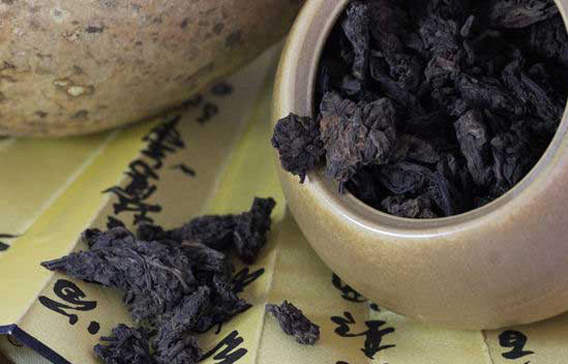 |
|
File photo shows the Pu'er tea produced in southwest China's Yunnan province.
|
Pu'er tea, a kind of quality black tea, is one of the necessaries of Tibetans, and also one of the seven kinds of sacrifices offered to Buddha in Tibetan Buddhism. Thus it has been the lifestyle of ethnic Tibetans living in southwest China's Yunnan province.
Recently, the 15th Red Hat Karmapa Shamarpa discovered a batch of Pu'er tea in the cultivation caves of the great Buddhist masters Padmasambhava and Milarepa. Among the excavated Pu'er tea is some from 860 years ago brought by different Rinpoches of the sects ranging from the 1st Dusum khyenpa Rinpoche to the 15th Red Hat Shamarpa.
Boasting a long history, today's Pu'er tea can be dated back to China's Zhou Dynasty (about middle 11th century 256 BC). It was introduced into Dechen Tibetan Autonomous Prefecture (a northwest Yunnan's prefecture which is famed for the Shangri-la County) in 700 B.C, according to the existing excavated tea sets.
Starting from 2,700 B.C. of China's Xia Kingdom, trade between Tibetan ancestors living on the Qinghai-Tibet Plateau and inland China thrived in the Tang Dynasty (618-917 A.D.) when a large number of Pu'er tea produced in Yunnan were sold to Tibet through the famous "ancient tea-horse road", which played a major role in trans-regional trade in the southwest of China, as important as another famous trade route the "the Silk Rroad".
Booming in the Ming Dynasty and the Qing Dynasty period (1368-1911 A.D.), the ancient tea-horse route collected locally produced Pu'er tea, passed through a number of transfer stations including Yunnan's Lijiang, Sichuan's Litang, Tibet's Chamdo, Nyingchi, Lhasa, Shigatse and Lhoka, and finally reached the neighboring countries such as India, Nepal and Bhutan, as well as further destinations in west Asia and Africa.
According to a historical work named "Man Shu" (literally means "an encyclopedia about today's southwest China and southeast Asia") of the Tang Dynasty, the tea trade through the ancient tea-horse road became so prosperous that there were thousands of merchants coming from Tubo, an ancient kingdom ruling the Qinghai-Tibet Plateau for hundreds of years.
We recommend:
